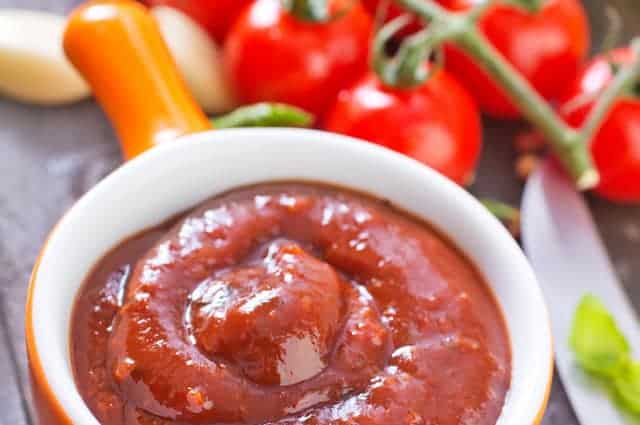In the fight against cancer, there is a surprising tool in the arsenal: the food we eat. That’s because some nutrients in food have been found to play a role in preventing cancer, and it’s relevant because the World Cancer Research Fund reports that 30 to 50 percent of cancer cases are preventable, putting a focus on stopping cancer from developing in the first place.
Xiang-Dong Wang, a senior scientist and associate director of the Jean Mayer USDA Human Research Center on Aging at Tufts, studies how food can help prevent cancer development, particularly lung, liver, and colon cancer.
Although the rate of most cancers is dropping, there is increasing concern about the rise in both incidence and death rate of liver cancer in the United States, partially due to the parallel rise in nonalcoholic fatty liver disease, obesity, and diabetes.
One food of interest is tomatoes and tomato products rich in lycopene, a naturally occurring pigment that gives many fruits and vegetables their reddish hue.
In a research study recently published in the journal Cancer Prevention Research, Wang’s Nutrition and Cancer Biology lab examined the cancer preventive effects of tomatoes as a whole food rich in lycopene. In infancy, mice were infected with a liver carcinogen and then fed an unhealthy high fat diet, akin to a Western diet, with or without tomato powder containing lycopene.
Researchers then evaluated how well the tomato powder protected mice against inflammation and cancer. In humans, the equivalent supplementation amounts to eating two to three tomatoes a day or a serving of tomato sauce over pasta.
Tufts Now: What did your study find?
Xiang-Dong Wang: We demonstrated for the first time that tomato powder rich in lycopene can effectively reduce fatty liver disease, inflammation, and liver cancer development promoted by the high-fat diet the mice were consuming. Feeding mice tomato powder increased the richness and diversity of beneficial microbiota and prevented the over-growth of some bacteria related to inflammation.
Interestingly, we observed that tomato powder is more effective than the same dose of purified lycopene supplementation to prevent liver cancer development. This could be due to the potential beneficial effects of other nutrients in a whole tomato, such as vitamin E, vitamin C, folate, minerals, phenolic compounds, and dietary fibers.
The next step would be to conduct high-quality randomized clinical trials with people to understand more about tomato lycopene’s role in lowering the risk of inflammation and liver disease. In the meantime, we believe that consuming lycopene-rich whole foods may be more effective in preventing cancers than isolated—or purified—lycopene.
What do we know about lycopene?
The richest source of lycopene is from tomatoes. Other foods, including guava, watermelon, grapefruit, papaya, and sweet red pepper also contain lycopene, but in much lower concentrations compared to tomatoes. Eating tomatoes and tomato products such as tomato sauce rich in lycopene is associated with a lower risk of cardiovascular disease, osteoporosis, diabetes, and certain cancers, including prostate, lung, breast, and colon cancer.
Although these associations come from observational studies, many laboratory studies have demonstrated that lycopene is a strong antioxidant, anti-inflammatory and anti-cancer agent.
How can we maximize the benefits of lycopene?
Consuming whole foods, like tomatoes and processed tomatoes from sauces, tomato paste, canned whole tomato products, ketchup and juice, provides the best source of lycopene. Cooking tomatoes and adding a small amount of fat, like olive oil, can help improve lycopene absorption.
If our reporting has informed or inspired you, please consider making a donation. Every contribution, no matter the size, empowers us to continue delivering accurate, engaging, and trustworthy science and medical news. Independent journalism requires time, effort, and resources—your support ensures we can keep uncovering the stories that matter most to you.
Join us in making knowledge accessible and impactful. Thank you for standing with us!

